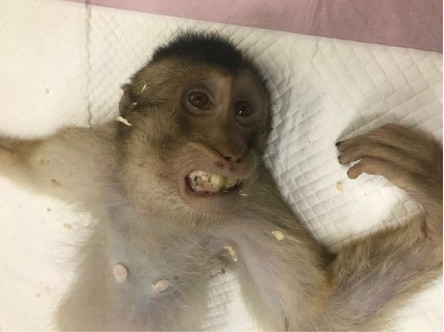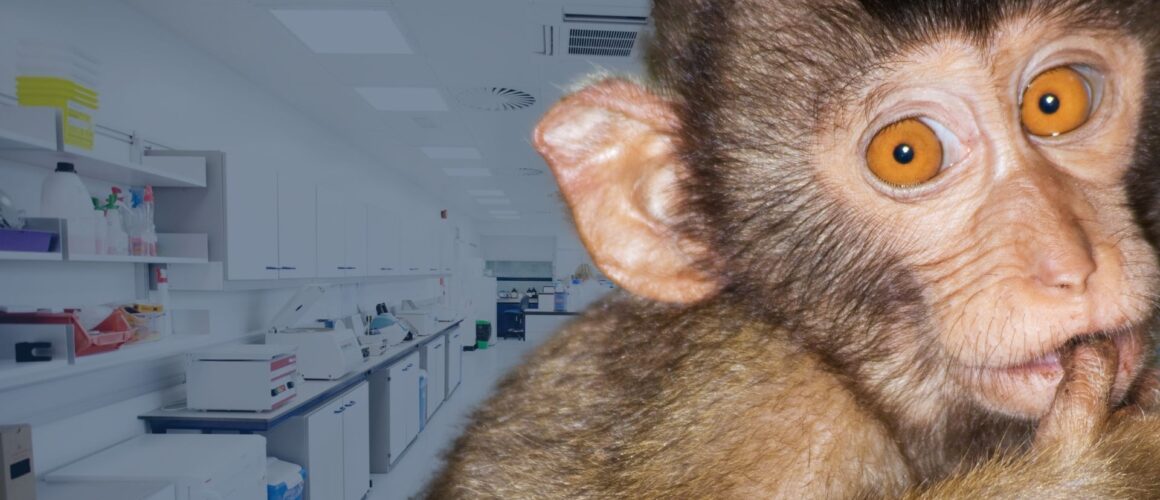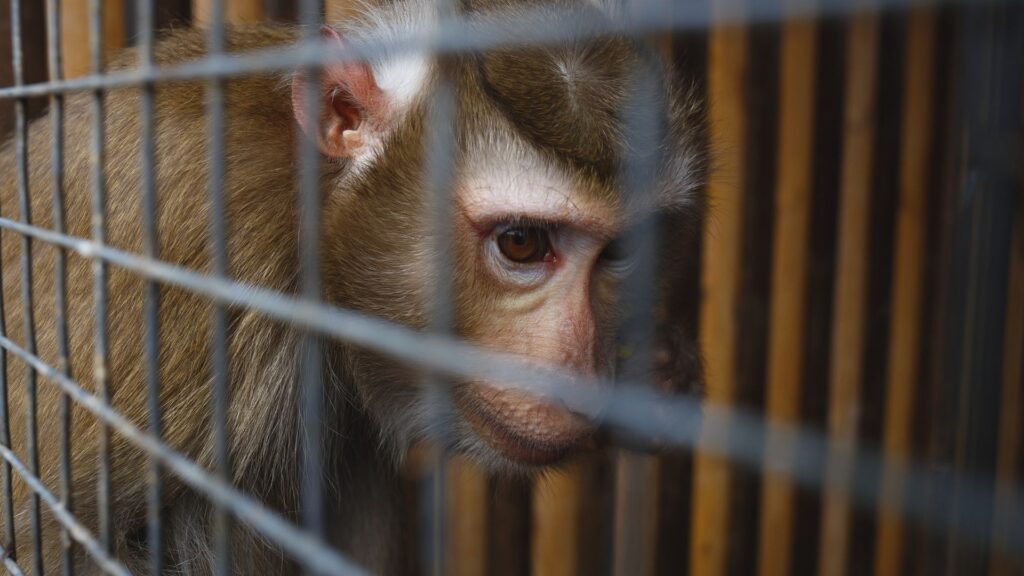Cover Image: A macaque is kept in a cage by Mumememories for Getty Images Signature.
Horrifying deaths uncovered via Freedom of Information disclosures to AFSA
Between 2018 and 2022, the unexpected deaths of five macaques at a Gippsland breeding and research facility were reported in incident reports obtained by Animal-Free Science Advocacy. Whilst the causes of these deaths remain largely unconfirmed, the circumstances in which the primates died suggest a range of factors, including heart failure, chronic infections, extreme bullying and aggression from other primates, chronic severe gastroenteritis and cardiovascular collapse due to staff error during the administration of general anaesthesia.
The discovery follows previous exposure by Animal-Free Science Advocacy of the unexpected deaths of two macaques and two marmosets at the Gippsland primate breeding facility between 2016 and 2018.
Managed by the Monash Animal Research Platform (MARP), the primate breeding facility has the capacity to house 800 primates for use in medical research. This centre was established through National Health and Medical Council (NHMRC) financial support, as the only breeding colony of marmosets and macaques for research use in Australia. There is limited transparency, with information pertaining to current funding and operations on the facility not available in the public domain.
MARP states it is ‘committed to excellence in maintaining the health and welfare of animals under its care and in exceeding the standards specified in the relevant Codes of Practice and industry regulations’. The frequency of such deaths suggests otherwise, and a clear need for review of the associated Codes of Practice. Of concern, Animal-Free Science Advocacy has established that there has only been one audit of the Gippsland breeding facility in the last decade.

Statement by Animal-Free Science Advocacy CEO Rachel Smith
The discovery of further unexpected deaths at the Gippsland breeding colony is sadly not surprising. The captive management of stressed animals subjected to invasive procedures, alterations of family groups, and the inducement of conditions such as diabetes cannot occur without devastating consequences on sentient, intelligent animals. It is time that Australia commits to an end to primate experimentation to protect primates from further harm at the breeding colony and as research subjects in invasive medical research’.

